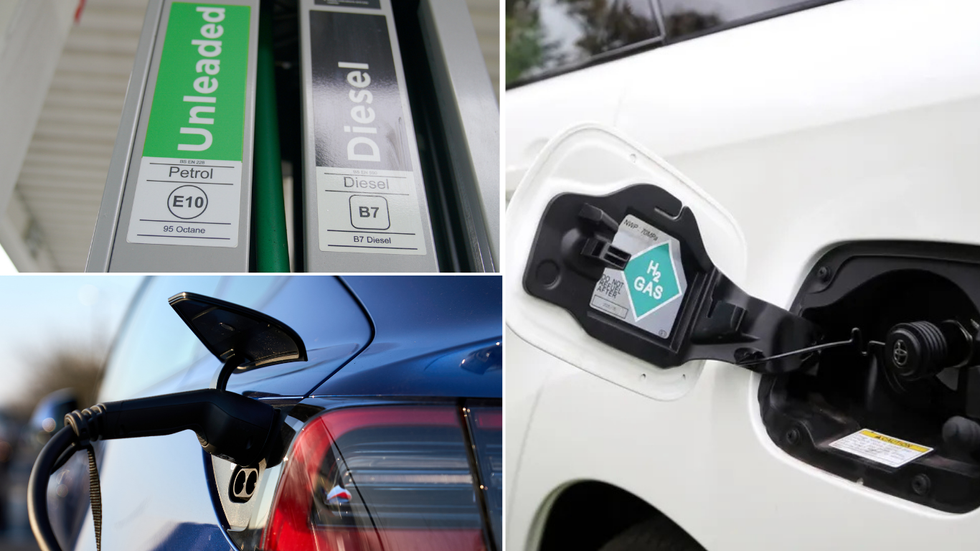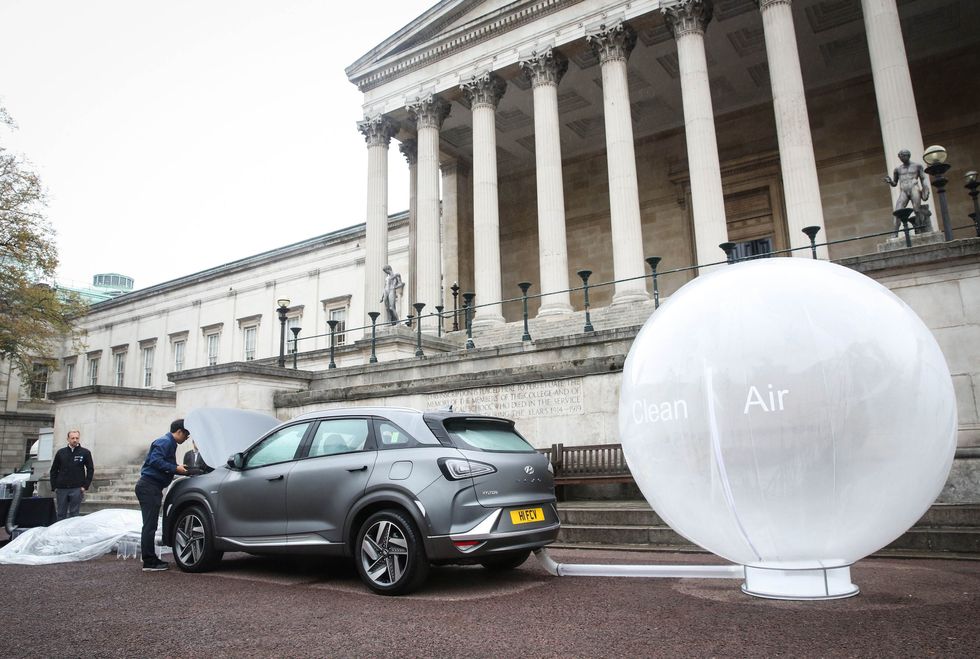UK urged to move away from biofuels and only focus on electric as alternative to petrol and diesel
E-fuels and biofuels are being promoted as potential alternatives to petrol and diesel, despite experts warning they could derail the UK’s transition to cleaner transport.
The warning follows a new report from Transport and Environment (T&E) which revealed that synthetic fuels pose a significant threat to both environmental goals and consumer wallets.
The study highlighted that rather than offering a viable solution, these alternatives could seriously hamper the decarbonisation of the transport sector by slowing down the shift to electric vehicles.
Industry specialists cautioned that pursuing e-fuels would divert crucial investments away from electric vehicle development which is already in a fragile state.
Do you have a story you’d like to share? Get in touch by emailing motoring@gbnews.uk

Another point raised in the report was that running a car on e-fuels would cost drivers £10,000 more over five years compared to operating a battery electric vehicle.
Even second-hand cars running on e-petrol could face the same steep premium price over that timeframe.
The cost at the pump would see dramatic increases, with drivers potentially paying £210 to fill their tank by 2030 compared to £140 today – a 50 per cent jump in costs, T&E warned.
Experts stated these prices could climb even higher, with forecasts for 2040 suggesting e-petrol could cost between £1.90 and £5.20 per litre, potentially doubling current fuel prices.
E-fuels also represent a highly inefficient use of renewable energy resources, requiring 26 per cent more renewable electricity just to power 10 per cent of new cars, the report noted.
Battery-powered vehicles are nearly four times more efficient than cars running on e-fuels. Cars running on synthetic fuels reportedly emit the same levels of toxic nitrogen oxides as conventional fuels and produce three times more carbon monoxide.
These synthetic alternatives generate billions of harmful particles per kilometre driven, offering little improvement to urban air quality.
Notably, the report claimed that biofuels “fare no better” as an alternative, with experts warning they cannot achieve 100 per cent CO2 reduction.
Current EU biodiesel emissions are deemed to be 20 per cent worse than fossil fuels when accounting for indirect land use changes, while bioethanol only provides emissions savings of 30 per cent.
Industry analysts warn the switch in fuel type could leave European and British manufacturers lagging behind international competitors, particularly as global markets increasingly shift towards electric vehicles.
The report added that the push for these fuels appears to be driven more by industry interests rather than practical solutions for decarbonisation.
It read: “Allowing e-fuels as an exemption in the car CO2 standards risks undermining emissions targets unless strict production rules are enforced.
LATEST DEVELOPMENTS:
- Elderly drivers may be ‘unaware that their vision has deteriorated’ amid calls for urgent law changes
- Hundreds of drivers risk hefty fines for offences on major motorway with dozens of vehicles seized
- UK car production falls again as forecasts warn of ‘deeply concerning times’ after Vauxhall plant closure

“Ensuring any future cars that are approved as CO2-neutral under a new vehicle category are exclusively fuelled by CO2-neutral e-fuels is critical to guaranteeing that the car CO2 standards are not undermined through continuing use of fossil fuels in these cars (as fossil fuels and e-fuels are interchangeable), especially if carmakers are allowed to count these vehicles towards their CO2 targets.”
With e-fuels producing similar pollution levels to conventional fuels and biofuels potentially worsening environmental impacts, experts have urged policymakers to resist creating loopholes for these alternatives and instead maintain focus on proven electric vehicle technology.

